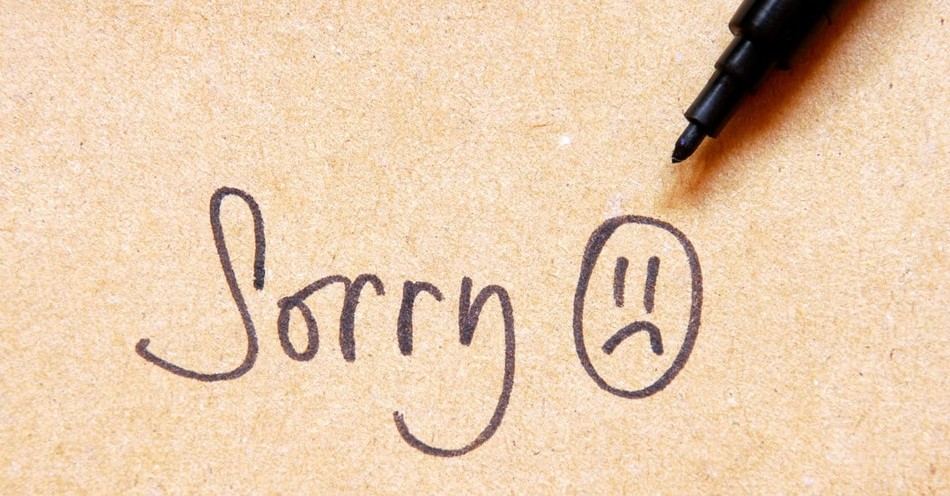Editor's Note: Pastor Roger Barrier's "Ask Roger" column regularly appears at Preach It, Teach It. Every week at Crosswalk, Dr. Barrier puts nearly 40 years of experience in the pastorate to work answering questions of doctrine or practice for laypeople, or giving advice on church leadership issues. Email him your questions at [email protected].
Dear Roger,
I have been reading about King David, called the "man after God's own heart." I know he asked God for forgiveness, but what about everyone else he hurt? Did he ever apologize to them?
Sincerely,
Katlyn
Dear Katlyn,
King David apologized to God for his adultery with Bathsheba in Psalm 51:4:
"Against You, and You alone I have sinned. I have done what is evil in Your sight."
Wait a minute! King David sinned against a whole host of people! And we never hear of an apology to any of them.
Did he apologize to Bathsheba? Did he apologize to Uriah? Did he say "I'm sorry" to Joab and the brave warriors who were sent to their deaths when David "arranged" his cover-up assassination? Did he show remorse to Bathsheba's family? Probably not, since Bathsheba's grandfather, Ahithophel, joined bitter Absalom to overthrow David's kingdom (2 Sam.15:31).
The casualties of this once humble king multiplied overnight. David lost his son with Bathsheba (2 Sam. 12:14). David lost his firstborn, Amnon, when Amnon raped his half-sister Tamar and caught the vengeful blade of Absalom in his back (2 Samuel 13:28-29). David lost 70,000 Israelite men shortly after when the insecure king, incited by Satan, numbered his troops (1 Chron. 21:1-14).
What did the "man after God's own heart" cause? Pain. Desolation. Destruction. And a trail of broken hearts.
Our sins don't happen in a vacuum. A sea of concentric circles of hurt wound, cripple and embitter others. Not only do we need to confess to God. We need to repent and humbly, deeply apologize to others.
David, too lazy to battle the Ammonites and too proud to summon Bathsheba himself, made all of his servants unwitting accomplices. The entitled King came. He saw. He took (2 Sam. 11:1-4). He made Bathsheba a one-night-stand and never looked back. Perhaps the wife of Uriah was performing the ritual of purification at sunset, as the Law prescribed (Lev. 15). The men of Israel were supposed to be on the battlefield. If the mighty King David summoned her, could she say no? Highly unlikely. Could you imagine her fear at the unwanted pregnancy with a man who was not her husband? Her grief when the baby was taken from her?
Nothing at the Palace goes unnoticed. Uriah had probably heard the rumors. That's one reason theologians postulate he refused to sleep with his wife. (2 Sam. 11:5-27). Possibly Uriah was angry, even enraged at the betrayal. The King referred to his friend as Uriah the Hittite. Many scholars say that Uriah was one of the loyal comrades who fought by David's side at Adullam, Ziklag or Hebron (2 Sam. 23:18, 24; 1 Chron. 11:26). Hittites were despised. Lower class. Why would David demean his dedicated commander by calling him a Hittite? Why would he so cruelly betray a trusted ally?
General Joab suffered deeply. His missed his King battling by His side. Then David commanded him to surreptitiously kill one of his soldiers (2 Sam. 11:14-17). Shortly after, Joab begged David not to number his fighting men. Joab spent months counting fighting men all over Israel, knowing full well that all would suffer for David's sin. David owed his leader an apology. A big one. The devastation of the three-day plague rocked the nation as 70,000 men paid the price for David's pride (1 Chron. 21:1-5).
David knew how to repent. Just read Psalm 51:
- He admitted he was wrong and that he had sinned (verses 1-4).
- He recognized that he lied (verse 6). He was specific in his confession.
- He claimed responsibility for his actions and did not justify or minimize the hurt they caused (verse 14).
- He did not make empty promises he didn't intend to keep (verses 16-17).
- His apology was emotional and profound (verses 8-9).
- He asked God to repair and restore the damage that had been done (verse 18).
Good things happen when we confess to the one we’ve hurt and secure forgiveness for what we’ve done. The one we have hurt has an opportunity to process and heal the hurt that’s occurred. We have the opportunity to reconnect and hopefully reconstruct our relationship with that person.
We can expect consequences when we sin. How different would our marriages, our families and our friendships be if we could learn to humbly ask for forgiveness?
Why don't we start today?

Publication date: August 25, 2016


.jpg)

.jpg)